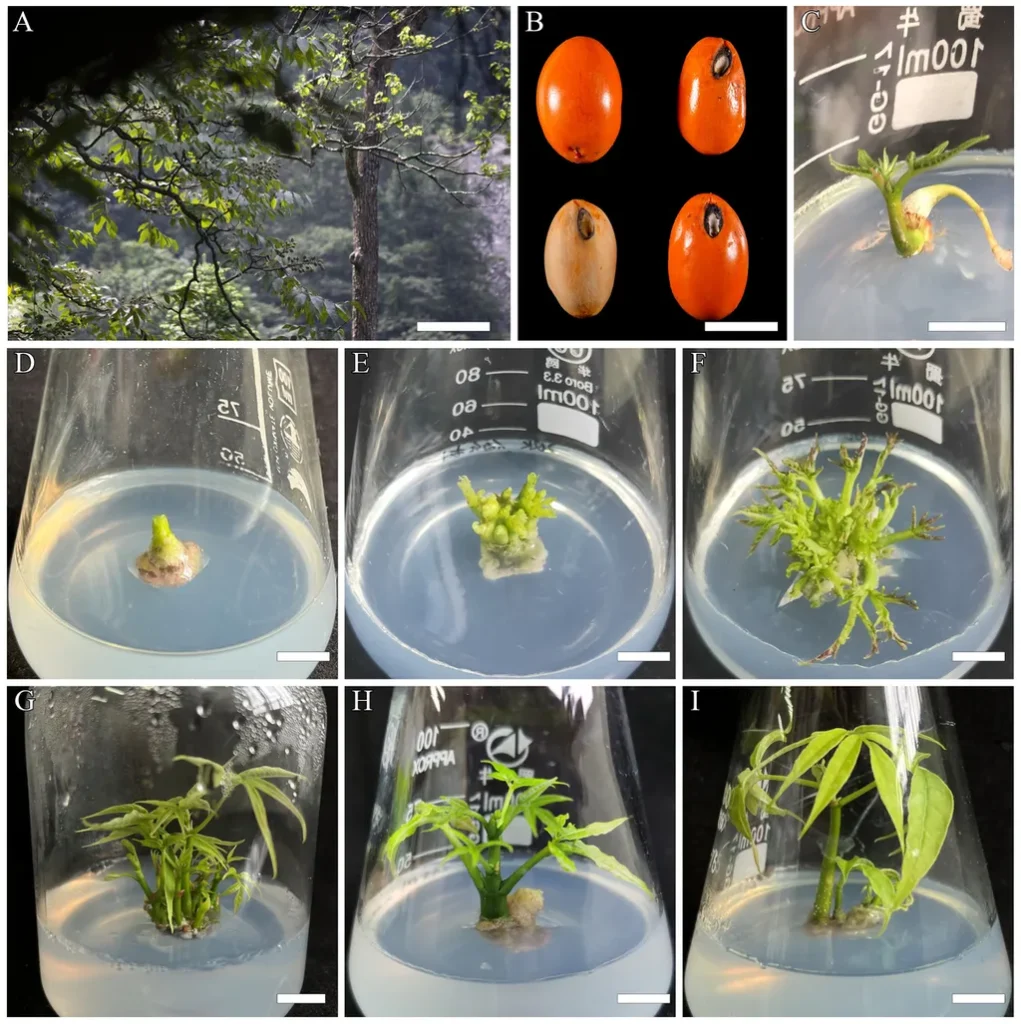In the heart of Europe, the Balkan Peninsula is making significant strides in the field of in vitro biotechnology, particularly for woody plants. A recent study published in *Frontiers in Plant Science* (which translates to *Frontiers in Plant Science* in English) sheds light on the advancements and challenges faced by researchers in this region. Led by Valbona Sota from the Department of Biotechnology at the University of Tirana in Albania, the research provides a comprehensive overview of the progress made in the Balkans from the early 2000s to the present.
The Balkan Peninsula is a biodiversity hotspot, home to 6,500 native vascular plant species, many of which are endemic. The region’s diverse climates and complex topography make it an ideal habitat for a wide range of woody ornamental, fruit, and forest species. However, these natural treasures face threats from climate change, habitat destruction, invasive species, plant diseases, and agricultural practices. To combat these challenges, many Balkan countries have turned to advanced biotechnological approaches, including micropropagation, in vitro conservation, and in vitro selection for stress-tolerant genotypes.
Valbona Sota and her team have focused on optimizing media composition for all components and micropropagation stages, as well as effective initial explant selection. They have also explored temporary immersion bioreactors, synthetic seed technology, and cryopreservation techniques to enhance plant production and conservation. “Our research aims to address the critical need for sustainable plant production and conservation in the Balkans,” Sota explains. “By leveraging in vitro biotechnology, we can develop stress-tolerant genotypes that can withstand the impacts of climate change and other environmental threats.”
Scientific research for woody ornamentals and fruit tree species has progressed significantly in Albania, Bulgaria, Croatia, Greece, and Serbia. Forest tree production research is currently conducted in Bulgaria, Greece, and Serbia, with labs focusing on micropropagation and ex situ conservation. Several commercial companies operate in the Balkans, producing in vitro-derived planting material for fruit trees and woody ornamental plants. These companies are not only contributing to the local economy but also playing a crucial role in the global plant biotechnology market.
Despite these advancements, research in the Balkan countries remains fragmented. The study emphasizes the need to strengthen regional collaboration and knowledge exchange to promote agricultural development processes and biotechnological applications in the region. “Collaboration is key to overcoming the challenges we face,” Sota notes. “By working together, we can accelerate the development of innovative solutions that benefit both the environment and the economy.”
The study highlights key scientific advances in in vitro biotechnology for woody plants, identifies challenges, and proposes solutions. It underscores the value of interdisciplinary collaboration through the optimization of in vitro methodologies, the promotion of germplasm conservation, and the sustainable use of plant genetic resources in the Balkans.
This research has significant implications for the energy sector, particularly in the development of bioenergy crops. By improving the efficiency of plant propagation and conservation, in vitro biotechnology can contribute to the production of sustainable and renewable energy sources. The advancements made in the Balkans could pave the way for similar initiatives in other regions, fostering global collaboration and innovation in the field of plant biotechnology.
As the world grapples with the impacts of climate change and the need for sustainable energy sources, the work being done in the Balkans offers a beacon of hope. By harnessing the power of in vitro biotechnology, researchers and commercial entities in the region are not only preserving biodiversity but also contributing to the development of a greener, more sustainable future. The study published in *Frontiers in Plant Science* serves as a testament to the potential of regional collaboration and innovation in addressing global challenges.

